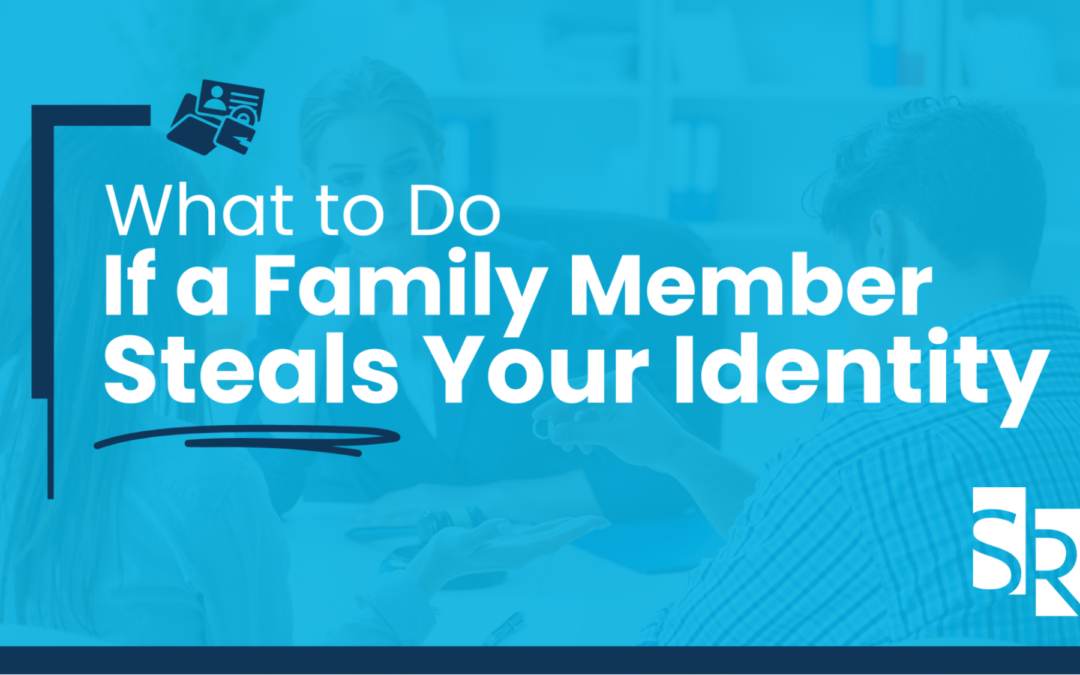Unfortunately, identity theft doesn’t just happen when strangers find your information; it can also happen within our family units. Family identity theft is one of the many types we can be inflicted with at any time. Like any event, when the family is involved, it can get messier than usual. So, if you discover that a family member stole your identity for nefarious reasons, here is your guide on what to do next.
What Family Identity Theft Looks Like
Family identity theft can happen at every level. Specifically, there are four main types to look out for.
Child identity theft occurs when a parent or other family member takes a child’s identity to open accounts or take out loans. It can be enticing because a child will have a completely clean record and will likely be approved for most things.
Spousal identity theft occurs when one partner takes the other’s identity to open bank accounts or rack up debts in their name. Often, the main spouse only finds out once there is too much debt in their name.
Sibling identity theft is far too common when someone tries to get out of a criminal charge or when they are utilizing the other’s Social Security Number or cashing in checks. The affected sibling might not find out until law enforcement is brought in.
Senior citizen identity theft is extremely common if the victim is effectively retired and their records have been clean and unused for a while. Family members might take advantage of that and steal personal information to open bank accounts or take out loans.
Your Next Steps
If any of these have happened to you, it is essential to act quickly and put a stop to their antics.
Put a Freeze On Your Accounts
If you have seen activity on accounts that are not yours or loans you did not request, it can be wise to put a freeze on your accounts so that no more actions can be taken without your verbal consent. Additionally, you can place a fraud alert on your accounts going further that will alert you if a transaction seems strange.
Notify the Federal Trade Commission and Credit Bureaus
The most important thing to do when you have found out that your identity has been stolen is to gather the proper documentation and report it to the FTC and the three main credit bureaus. When you report to the Federal Trade Commission, you will be given a recovery plan and aid on what to do next. Then, report the theft to Experian, TransUnion, and Equifax to resolve the issues.
Contact Other Affected Vendors
Then, if there were loans taken out in your name, items purchased that you do not want, or actions done within other businesses, you can reach out to those vendors and explain what happened with the proof you accumulated previously.
File a Police Report
With the documentation you have, you should report the identity theft to your local police as it is a federal crime. They can ensure it is taken care of and brought to the right people. This police report is also necessary for the three main credit bureaus to ensure you have proper standing.
Tackle the Personal Side of Family Theft
Then, having your identity stolen from a family member can get much messier than if a stranger did it. It might require some tough conversations and possible legal actions if you so wish. However, it is essential that you take the proper steps to protect yourself from this happening again. It is up to you how to handle it past the point of reporting it to the credit bureaus and law enforcement.
Family identity theft can cause a bigger challenge than other types of identity theft. If you have gone through this and have yet to see your reports return back to normal even after you went through the right processes, or if your voice is not being heard by vendors or credit companies, contact the team at Stecklein Robertson Law.
